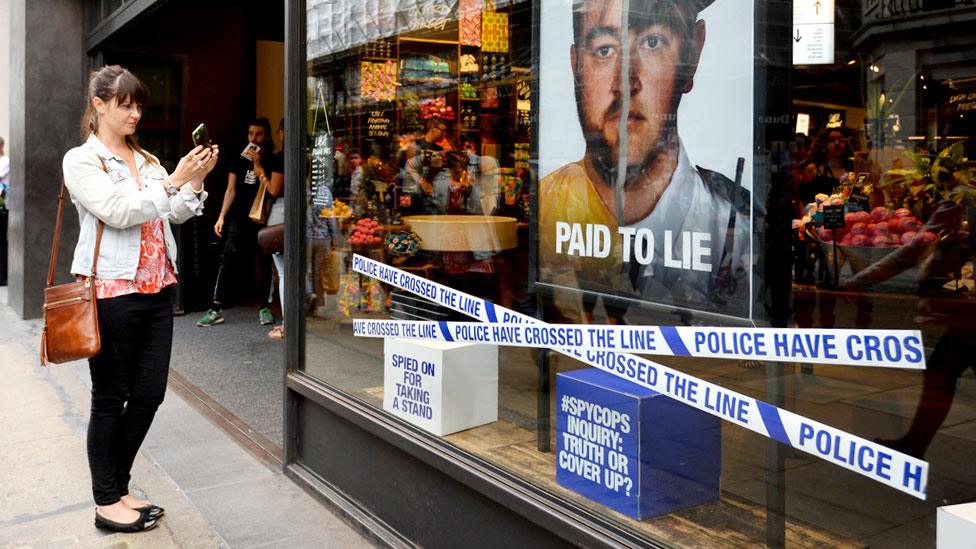Lush drops 'anti-spy cops' campaign
- Published

Lush says it has suspended the campaign due to concerns for staff safety
Cosmetics company Lush has dropped its campaign drawing attention to the so-called UK "spy cops" scandal.
The brand had been criticised on social media for a window display focusing on the scandal, which some people said amounted to an attack on police.
Lush said it had suspended the campaign "for the safety of our staff".
The campaign related to a public inquiry into claims of wrongdoing by undercover officers who infiltrated activist groups in England and Wales.
Lush has said it was designed to urge Home Secretary Sajid Javid to listen to campaigners who have accused the inquiry - which was set up in 2015 - of protecting officers.
The Dorset-based company's window display featured an image of a man dressed as both a police officer and in plain clothes, alongside the words: "Paid to lie".
Mock police tape across the shop window also read: "Police have crossed the line."
Some on social media called the campaign "disgusting"
It is not known whether the campaign - which was set to run at all Lush shops in the UK - will be reinstated before its previous end date of 17 June.
Lush previously said it aimed to highlight "this small and secretive subset of undercover policing that undermines and threatens the very idea of democracy".
it "is not an anti-police campaign".
Lush UK had changed its social media branding to reflect the campaign - but the banner has now disappeared
The Advertising Standards Authority (ASA) previously said it had received over 30 complaints but would take no action "as the matter is outside our remit".
A number of police officers criticised the campaign, with one officer - who said he was also an ex-Lush employee - saying he was "heartbroken".
Allow Twitter content?
This article contains content provided by Twitter. We ask for your permission before anything is loaded, as they may be using cookies and other technologies. You may want to read and before accepting. To view this content choose ÔÇÿaccept and continueÔÇÖ.
The Police Federation representing England and Wales also wrote an open letter of complaint to the ASA.
Vice-chairman of the Police Federation, Ch├® Donald, said it was a "very poorly thought out" campaign.
Allow Twitter content?
This article contains content provided by Twitter. We ask for your permission before anything is loaded, as they may be using cookies and other technologies. You may want to read and before accepting. To view this content choose ÔÇÿaccept and continueÔÇÖ.
- Published1 June 2018